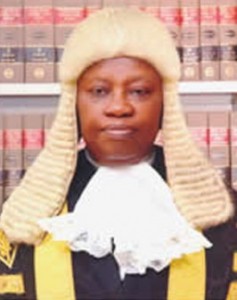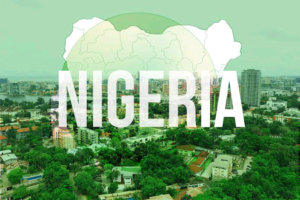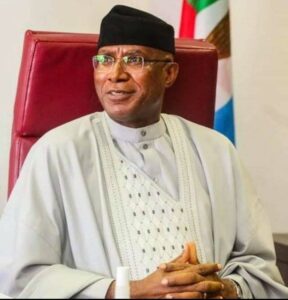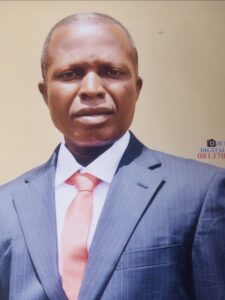SAFE-GUARDING THE PEOPLES’ RIGHTS
On a universal scale, tremendous strides have been recorded by many countries in their efforts to protect the fundamental rights of their citizens, as the world progresses to becoming a global village, reducing the oppressive tendencies of some of the Heads of Government and their agents. These rights are numerous. Some have to do with life itself while others with how to ensure freedom, safe and meaningful human existence on earth.
The responsibility for the protection of the rights of the citizens of a country as stipulated by constitutional provisions and other legislations rests squarely on the shoulders of the government. Measuring the level of civilization attained by a country derives from its proven ability to protect her citizen’s rights, which the developed democracies have demonstrated.
Beyond national boundaries, the International Communities have also developed effective strategies for the protection and defence of fundamental rights of people, providing opportunities for persons dissatisfied with how they are being treated in their countries to seek redress.
In order to be effective, fundamental rights issues are normally founded on legalism and search for justice, according to the provisions entrenched in the constitution of a country, as well as international treats and conventions. New legislations are enacted to correct lapses previously unknown to improve on the monitoring and safeguard of the rights of different persons and groups.
Countless number of Non-Governmental Organizations called Human Rights or Civil Rights organizations have increased all over the world assisting Governments and International bodies in the fight for protection of fundamental human rights. This confirms the fact that Human Rights issue, that span a very wide range of activities are now a major problem in securing a conducive living environment for the citizens of the different countries especially in Nigeria.
In our country, Nigeria, human rights issues have over the years cast a dark shadow on our quest for good governance, particularly during the military regimes. Essentially, the Head of State functions as a Dictator with enormous powers and against this, human right issues have been less worrisome during civilian regimes.
When the 1999 Constitution was crafted several sections of it were made to spell out what the human rights requirements of Nigerians should be. Under chapter IV, Fundamental rights; numerous provisions were made for the recognition and sustenance of the fundamental rights of Nigerians. Clearly, the most important right is the right to life followed by the right to the various types of freedom.
The focus of this piece is the unraveling of the reasons behind the frequent abuse of the rights of Nigerians by their various Governments and law enforcement agencies. Alongside this will also be the examination of how these abuses can be ameliorated or abated in the dispensation of late President Musa Yar’Adua, who proclaimed that his administration will anchor its actions on the platform of the rule of Law.
This pre-supposes that Government, the Judiciary, all the law enforcement agencies, the anti-graft agencies and of course the entire citizenry must acknowledge the rule of law in whatever they do. As earlier indicated, human rights issues are invariably clothed in legal bits and pieces, necessitating the use of the law courts and other arbitration bodies in sorting out those whose rights are being infracted and those responsible for such infractions.
For the purposes of discussion, the rights of the citizens can be separated into social, economic and political groups not only in terms of what the Nigeria Police does in brutalizing the common people in order to highlight some aspects of human rights abuses in our country.
In social context, the rights to different forms of freedom, such as freedom of speech, freedom of association, freedom to hold opinion are frequently abused by our law enforcement agents in which citizens suffer a lot of deprivations. Notoriously, our people are unjustly detained in police cells and forced to pay bribe money before bail is granted.
On the economic front, there are several rights, stated in the 1999 constitution which is meant for the economic welfare of the citizens who are regularly abused through wrong policies and programmes of Government. Such provisions are what form the basis for social welfare programmes and economic activities that generate wealth and prosperity for the citizens.
The surest way to achieve the economic goals of a country is through the judicious use of the available resources. Again the few persons who have ruled over us have consistently deployed these resources for their personal use. It is estimated that about 600 Billion dollars (N37 trillion in 13 years) were stolen by our rulers between 1999 and 2011, which is why our country is underdeveloped and the citizens living in the abject poverty.
Politically, the rights of Nigerian have been thoroughly abused more so in recent times during which the politicians have failed to recognize that power belongs to the people, and assaulted our sensibilities through the bastardization of the electoral process, even
depriving the citizens of their voting rights. When drawing up their annual budget, our Governments completely ignore the people. How then do they know what the people want? In most states of our beloved country Nigeria, many children do not go to school, yet we are told that they have a right to education. How will these children obtain good health when they are poorly fed, and live in dirty surroundings with their poor parents?
If Nigerians have a right to life; why then have the Governments refuse to create the enabling environment for safe living? Why do our roads remain death-traps? How come our health care delivery system is still grossly inadequate? Our people are being ravaged by easily curable diseases such as malaria, tuberculosis, diarrhea e.t.c. that claimed many lives and Nigeria has a very high child and material mortality rate.
The right to life cannot be guaranteed when safe drinking water, homes to live in and security of life and property are far–fetched. From North to the South, the crime rate is very disturbing and nothing is being done about the rampant brutalization of the citizens and extra-judicial killings by the police. Above all, how can the youths keep body and soul together when they are jobless?
The overall picture in the country has been that the rights of most Nigerians are being constantly and mindlessly abused. Evidently the inability of the rulers to safeguard the people’s rights is largely due to the magnitude of greed, selfishness and corruption in governance. Our rulers lack compassion and are insensitive to the people’s problems, thereby making the country under developed.
Many state Governments are still to find their bearing and indulging in promises, without embarking on concrete development projects. The Niger-Delta region continues to be the subject of planning and fight against militants in which security matters have overtaken the provision of infrastructure and other socio-economic facilities. Obviously political reforms cannot be carried out now and the conduct of Local Government elections is further fouling the air politically.
In spite of the efforts of the human rights or civil society organizations, not much has been achieved in the fight against the above of the rights of Nigerians and the elite class is simply uninterested. Our Lawyers are helpless in stopping payment of bribe for bail, while the Doctors and other health workers continue to extort money from patients in Government Hospitals. The public and civil servants are looting the treasury in collaboration with their political masters exemplified by how some ex-governors bled their state treasures.
For obvious reasons, the ordinary people are incapable of defending their rights, and the rulers seem to have pocketed the leaders of Nigerian Labour Congress, NLC. The opposition political parties are in disarray, unable to challenge Government over the abuse of the peoples’ fundamental rights.
It is difficult to fathom how the abuse of the rights of Nigerians can be abated and safeguarded under the present circumstances. The poser that confounds many analysts is the inability of the Nigerian people to defend and safeguard their fundamental rights in the face of numerous they suffer. Why do they sleep over their rights? If they do not fight for their rights, who will do it for them?
Christopher Odamah,
400 Level, Political Science Education,
DELSU-Abraka, Nigeria.




